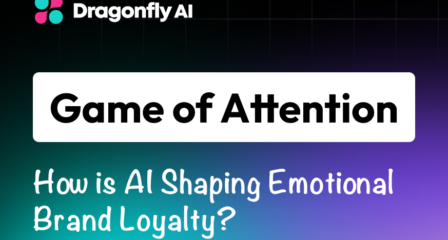
Neuromarketing offers something that no other technique currently can.
It offers a way to bypass our conscious responses, and access those which happen unconsciously. Big deal eh?
Yes, yes it is a big deal. The latest estimates suggest that about 90% of what goes into our decision-making processes are actually unconscious. Below our radar. Underneath the surface like an ice-berg. 90%. That is definitely a big deal. So that means that 90% of what influences the decisions we make, is not accessible to us. No amount of surveys or highly trained interviewers are going to be able to illicit the information from us …because we don’t know it ourselves.
How can this be?
This is because of the incredibly complex nature of what the brain does. Think about the last time you sat and had a cup of coffee with someone. Were you thinking about the conversation you were having and listening to their uttered noises which you interpreted into words and made sense from to give meaning? Yes? Well done you.
At the same time though, your brain was doing so much more. Think about the moment you reached down for your cup to take another swig. My guess is you were not thinking about it much at the time…if at all. But while you were concentrating elsewhere, your brain was locating the cup in your visual field, co-ordinating the movement of your arm(s) to reach out for it and pick it up by the handle. It would have made hundreds of adjustments as it lifted the weight of the cup from the table up towards your lips in a smooth arch without spilling any as it did. It would have received information about the temperature of the contents of the cup, known how hard to grip the sides of it, felt the sensation of the cup itself and how smooth or shiny it may have been. It would have prepared your mouth and lips to receive this incoming vessel and at the right moment, tipped the cup up just enough to steadily deliver the right volume of liquid into your mouth. And all the time without you having to consciously think about any of this.
Isn’t your brain wonderful?
This is what your brain is doing all day every day…and night come to that. Now, imagine if we had to be consciously controlling all of this activity. Imagine the mess! And the exhaustion. And the lack of ability to do anything else. This is why we are only consciously aware of the very tip of what our brain is actually doing. This enables us to focus our attention and cognitive capacity on more productive things than having to work out how to lift a cup or take each step.
For this reason, some people have referred to our consciousness as being the CEO of an organisation. They do not need to be involved in every detail of what is happening, they are responsible for the strategic direction of what happens and are simply alerted to the details when their involvement is required. So, if the calculations had gone wrong, and you ended up spilling hot coffee down your shirt, at this point you would have become conscious of it. Your attention would have been drawn to the priority for you to deal with it. Just like a CEO. The issues and emergencies get their attention.
However, another model I have come across says that your consciousness is not like a CEO at all. Instead it is more like the Press Office. Rory Sutherland asserts that “the conscious rational brain isn’t the Oval Office, its actually the Press Office – issuing explanations for actions we’ve already taken.” Time and again I see this in the research I conduct. I can measure the brain’s responses to stimuli, and yet the participants rarely report the same preferences. But if I report my observations to them, the Press Office kicks in and I get all sorts of retrospective justifications. The final interesting aspect of these is that when you compare the two results with split tests or actual buyer preferences, it is the unconscious responses which are the most accurate predictors of future behaviour.
The unconscious part of the brain is firmly in the driving seat of what we decide and do.
And so I repeat…neuromarketing really is a very Big Deal!




